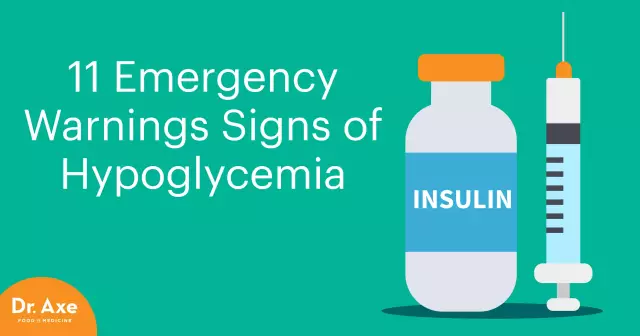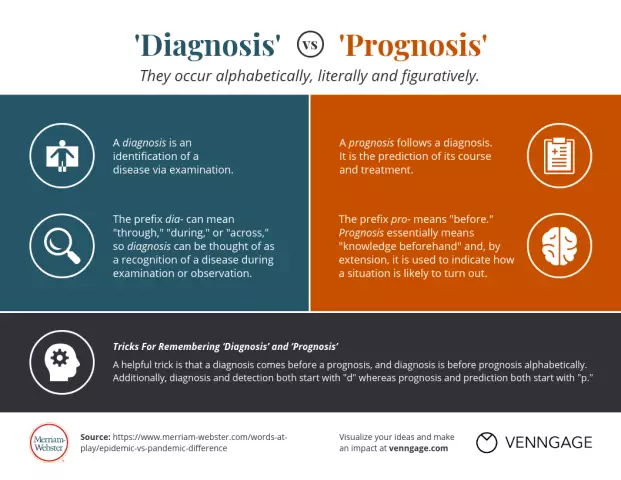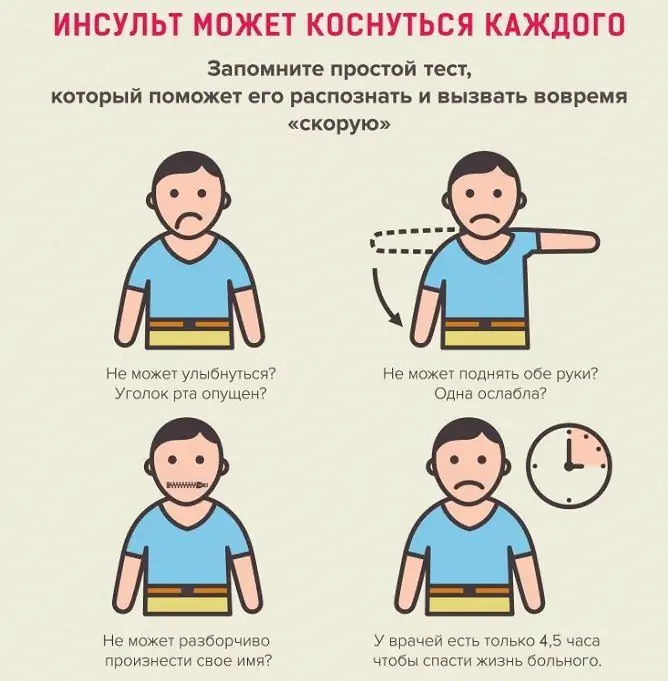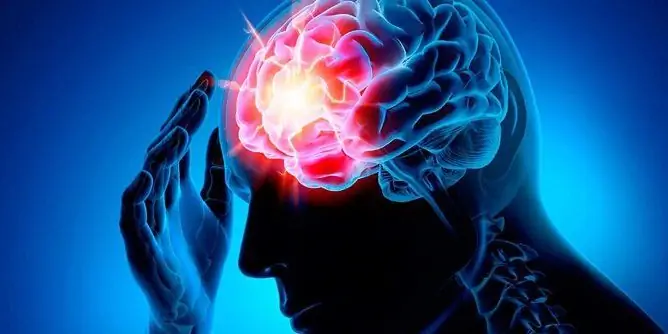- Author Rachel Wainwright wainwright@abchealthonline.com.
- Public 2023-12-15 07:39.
- Last modified 2025-11-02 20:14.
6 signs of hypoglycemia
Hypoglycemia is a medical condition associated with abnormally low blood glucose levels. People suffering from diabetes mellitus, severe liver and pancreatic diseases, malfunctions of the digestive tract, dysfunctions of the endocrine glands (adrenal cortex, pituitary gland, etc.), some infectious diseases (encephalitis, meningitis) can face hypoglycemic attacks. At risk are also individuals who are too active on low-carb diets, which are very popular today with those who are losing weight.
Let's get acquainted with those signs of hypoglycemia, which in no case should be ignored.

Source: depositphotos.com
Constant hunger
In mild hypoglycemia, hunger usually occurs suddenly. This is the response of the corresponding brain center to a low blood glucose concentration. Sudden hunger often occurs in diabetics against the background of physical exertion, eating disorders or improper use of antidiabetic drugs. Hunger can be accompanied by nausea.
In healthy people on a low-carb diet, unexpected hunger also appears due to the rejection of fiber-rich foods (vegetables, fruits, cereals). It is they who, getting into the stomach, create a long-lasting feeling of satiety. With a complete rejection of carbohydrates, a person can be hungry all the time, even immediately after eating.

Source: depositphotos.com
Headaches
A significant drop in blood glucose levels usually results in a drop in blood pressure. The result is a headache, often accompanied by dizziness. Occasionally, short-term speech disturbances and visual effects (for example, ghosting or color spots in front of the eyes) appear.

Source: depositphotos.com
Disorders of the central nervous system
The human body uses glucose as a universal source of energy. With its deficiency in the blood, nerve cells are especially affected, therefore, signs of deterioration in the work of the brain appear almost immediately.
Hypoglycemia is accompanied by the following manifestations:
- drowsiness, lethargy;
- difficulties with orientation in space;
- disorders of coordination of movements;
- impossibility of concentration;
- memory impairment;
- hand tremor;
- fainting;
- seizures similar to epileptic.
Lack of help with the onset and increase of these symptoms leads to a hypoglycemic coma, fraught with death.

Source: depositphotos.com
Thermoregulation disorders
The lack of "universal fuel" has a bad effect on the state of all organs and systems of the human body. During an attack of hypoglycemia, the patient may experience chills, complain of cold in the fingers and toes. Cold sweat may appear (the back of the neck and the entire scalp sweat). If an attack of hypoglycemia occurs at night, the whole body sweats profusely: a person wakes up in completely wet underwear.

Source: depositphotos.com
Weight stabilization while dieting
People trying to lose weight through low-carb diets often notice that at some point, weight stops losing, despite severely restricting their diet. This could be a sign of hypoglycemia. The fact is that with an insufficient intake of carbohydrates, the liver begins to process glycogen stores into glucose, the intensity of the breakdown of accumulated fats decreases.

Source: depositphotos.com
Mood swings
Glucose is involved in the production of the "happiness hormone" - serotonin. With its lack, a person ceases to enjoy life, becomes tense and gloomy. In addition, glucose deficiency has a depressing effect on the activity of the brain. A hypoglycemic attack can cause anxiety, fear, or excessive agitation in the patient. In severe cases, inappropriate behavior or outbursts of unmotivated aggression are not excluded.

Source: depositphotos.com
Patients with diabetes mellitus usually know how to control the level of glucose in the blood and know what to do to normalize it. For a person poorly informed and faced with hypoglycemia for the first time, this situation is very dangerous.
A severe attack, accompanied by confusion of consciousness, impaired speech and coordination of movements, vomiting, etc., requires medical intervention, such a patient needs to urgently call an ambulance.
An attack of mild hypoglycemia can be stopped on its own by delivering 12-15 g of easily digestible (so-called fast) carbohydrates to the body. This serving contains:
- a glass of warm tea with two tablespoons of sugar;
- two pieces of refined sugar;
- two teaspoons of honey (it is better to dissolve them slowly in the mouth);
- 150 ml bagged fruit drink or juice;
- one chocolate candy or two wedges of milk chocolate;
- one banana;
- five to six pieces of dried apricots.

Source: depositphotos.com
Within half an hour after taking one of these drugs, the patient's condition should improve. Unfortunately, stopping the attack does not mean that the problem has been resolved. Symptoms of hypoglycemia cannot be ignored: a deficiency in blood glucose can lead to the development of very serious pathologies. If the attacks recur, it is necessary to urgently consult a doctor, while refusing to follow a low-carb diet.
YouTube video related to the article:

Maria Kulkes Medical journalist About the author
Education: First Moscow State Medical University named after I. M. Sechenov, specialty "General Medicine".
Found a mistake in the text? Select it and press Ctrl + Enter.






